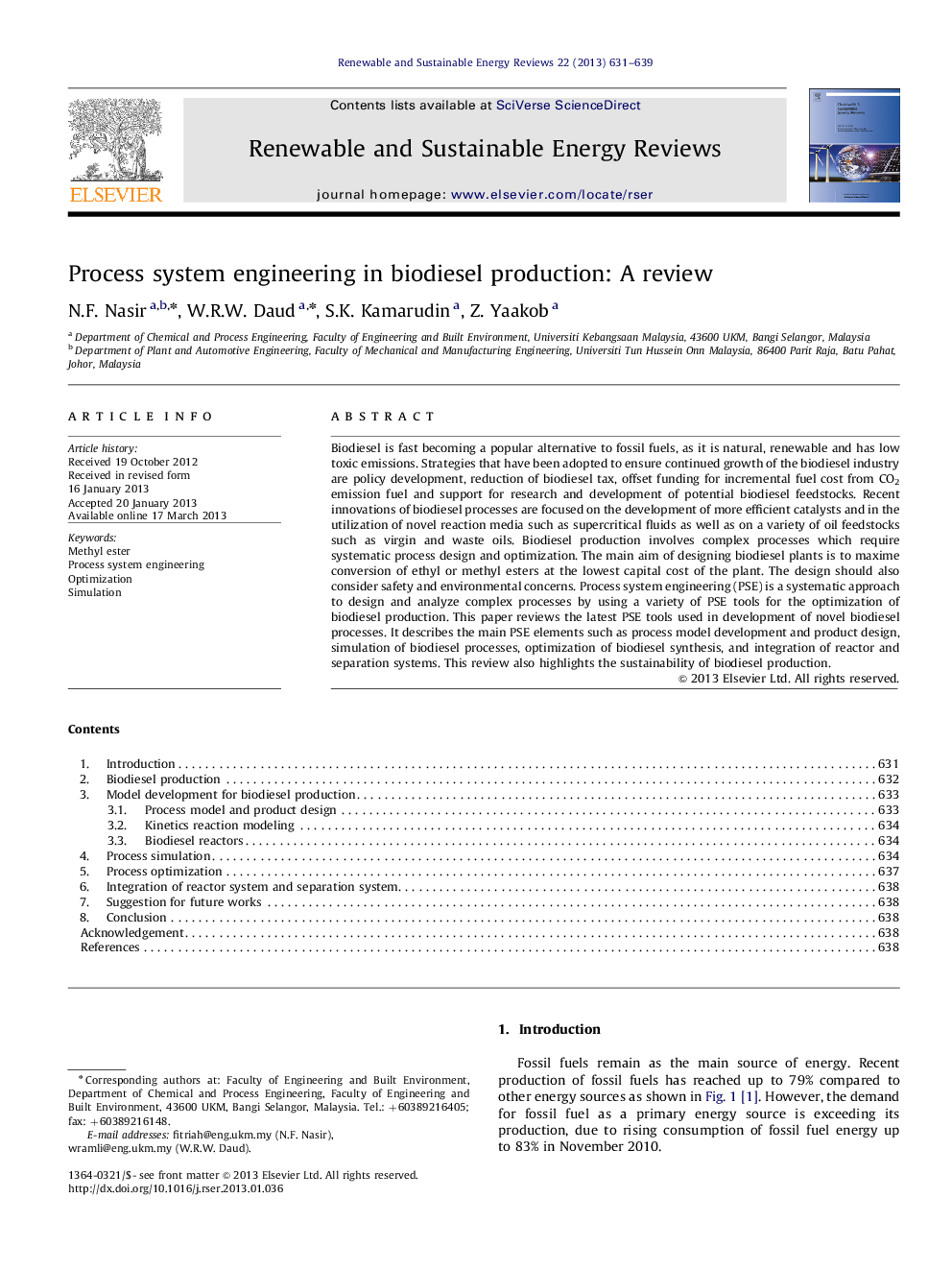| Article ID | Journal | Published Year | Pages | File Type |
|---|---|---|---|---|
| 8122304 | Renewable and Sustainable Energy Reviews | 2013 | 9 Pages |
Abstract
Biodiesel is fast becoming a popular alternative to fossil fuels, as it is natural, renewable and has low toxic emissions. Strategies that have been adopted to ensure continued growth of the biodiesel industry are policy development, reduction of biodiesel tax, offset funding for incremental fuel cost from CO2 emission fuel and support for research and development of potential biodiesel feedstocks. Recent innovations of biodiesel processes are focused on the development of more efficient catalysts and in the utilization of novel reaction media such as supercritical fluids as well as on a variety of oil feedstocks such as virgin and waste oils. Biodiesel production involves complex processes which require systematic process design and optimization. The main aim of designing biodiesel plants is to maxime conversion of ethyl or methyl esters at the lowest capital cost of the plant. The design should also consider safety and environmental concerns. Process system engineering (PSE) is a systematic approach to design and analyze complex processes by using a variety of PSE tools for the optimization of biodiesel production. This paper reviews the latest PSE tools used in development of novel biodiesel processes. It describes the main PSE elements such as process model development and product design, simulation of biodiesel processes, optimization of biodiesel synthesis, and integration of reactor and separation systems. This review also highlights the sustainability of biodiesel production.
Related Topics
Physical Sciences and Engineering
Energy
Renewable Energy, Sustainability and the Environment
Authors
N.F. Nasir, W.R.W. Daud, S.K. Kamarudin, Z. Yaakob,
